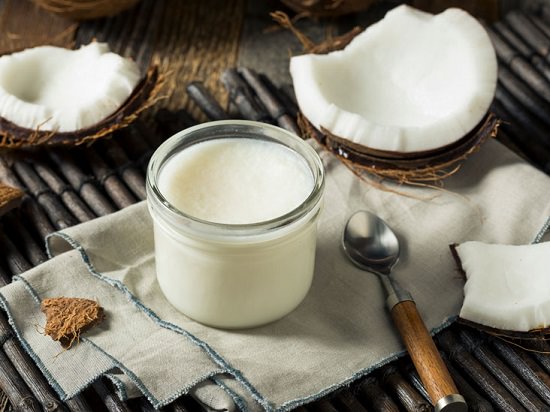There are many benefits of soaking hair in coconut oil, some of which are mentioned below. Keep reading to find out the details!

Coconut oil is extracted from the dry kernels of mature coconuts of the coconut palm. It has various medicinal properties that make it useful in a number of issues like:
- promoting your hair and skin
- Betters heart and nerve functioning
- Boosts Immunity
- Aids in weight loss, and combating stress
- Coconut oil is edible and also effective when applied topically.
Coconut oil is 100 % fat, mostly saturated fat. It has trace amounts of vitamins, minerals, and plant sterols. Oiling hair is an old traditional practice in Asian and African countries. Ayurveda, the Indian traditional medicine system, uses coconut oil as a base in many of its preparations. Coconut oil forms a protective shield around the hair and prevents it from damage due to water absorption and friction while combing.
Other benefits:
- It protects the hair follicle from damage due to chemicals like sodium laurel sulfate, found in shampoos.
- Prevents the weakening of hair and the eventual hair loss, which occurs due to the penetration of chemicals into the follicle spaces.
- You can apply this oil before you wash your hair to nourish your hair and after hair-wash to condition your hair and keep it tangle-free.
How to Apply Coconut Oil on Hair
- You might need anywhere from 1 teaspoon to 3 tablespoons of coconut oil, depending on the length and thickness of your hair.
- Slightly warm coconut oil as this will make it penetrate your hair faster by opening the hair cuticles.
- Part your hair into sections to make it easy to apply the oil on your scalp.
- Take a few drops of oil in your palm at a time and massage it into your entire scalp and down the length of your hair to the tips.
- Massaging your scalp with warm oil also increases blood circulation and improves blood and nutrient flow to your hair follicles. This, in turn, helps grow healthy hair.
- You can also use a wide-toothed comb to comb your hair and spread the oil evenly.
- Leave on for a few hours or preferably overnight.
- You can cover your hair with a warm wet towel to increase the oil penetration and avoid the pillows from becoming greasy.
- Wash it off with a mild shampoo the next morning. Do this 1 or 2 times a week for best results.
- You can also add other hair nourishing ingredients to coconut oil, such as yogurt, honey, or lemon juice.
Benefits of Soaking Hair in Coconut Oil

Coconut oil not just suitable for every hair type, it is also effective in protecting the hair from sun damage. The oil may even help in alleviating dandruff because of its antimicrobial properties. And not to mention, coconut oil is an excellent moisturizer for your hair and adds shine and luster to dull hair. If your hair is thin and damaged, you must try coconut oil as it can treat brittle hair and prevent further breakage. Regular application of coconut oil to your hair will reduce the fizziness and dryness of your hair and thereby, prevent split ends. The saturated fats in the oil protect hair from protein loss and increase the tensile strength of the hair by penetrating into the hair shaft. It is not just inexpensive and safe, but natural and a practical ingredient to better hair health.
Caution
- Do not use too much oil as you may need to apply shampoo 2 or 3 times to rinse it out. This may, in turn, make your hair dry.
- Too much coconut oil on your scalp can clog the pores.
- Leaving the oil overnight can also affect your skin if you have oily, sensitive skin.
- When left on your hair for too long, it can make your hair greasy and attract dust and grime.
- Avoid if your hair is very thin and delicate as it makes your hair look greasy and dull.
- Choose organic extra virgin coconut oil as it is unprocessed, chemical-free, and retains essential nutrients.
